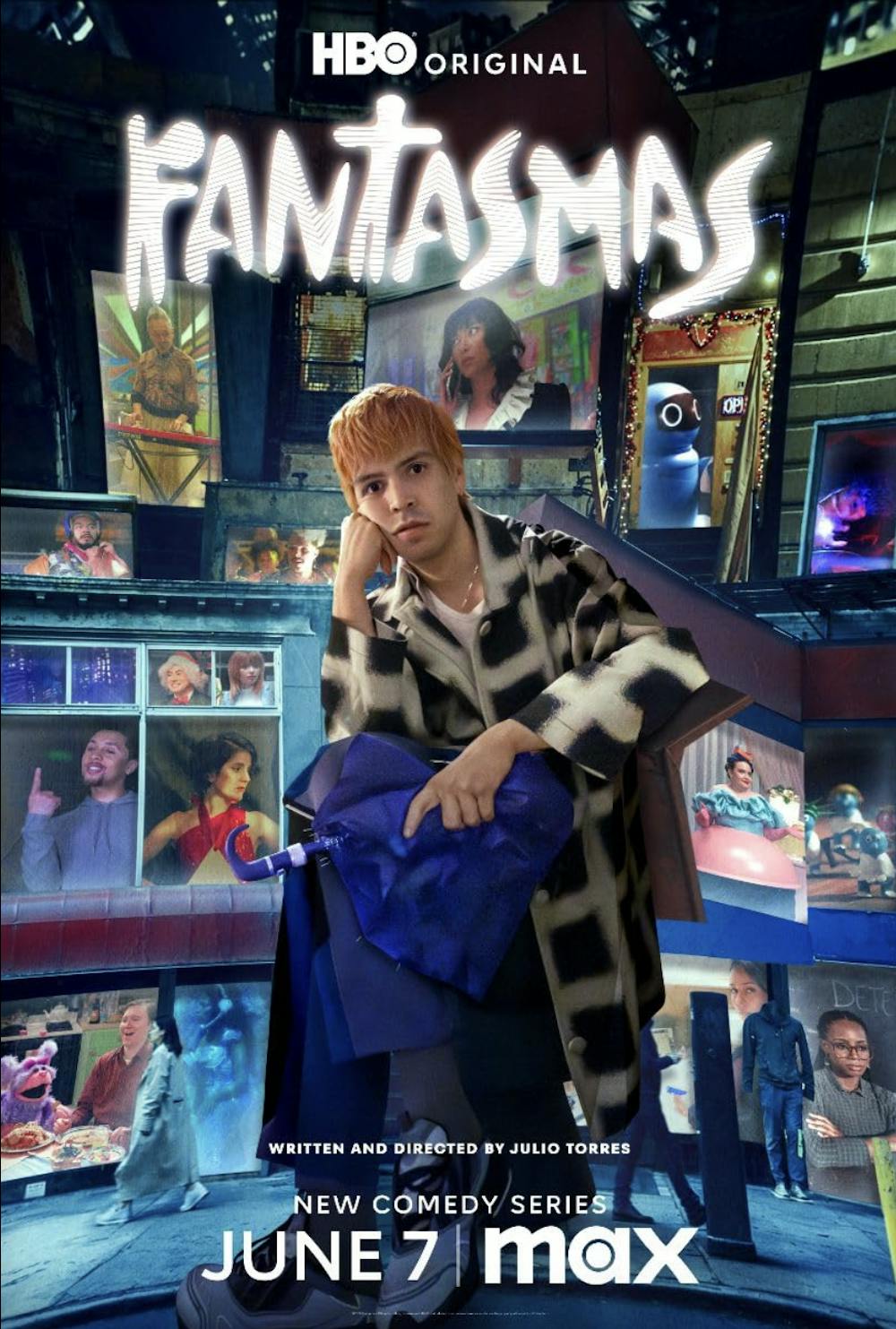In June, Max premiered the show “Fantasmas,” created by Salvadoran American writer and director Julio Torres. A surrealist comedy, it tells the story of a fictionalized version of its creator as he navigates an alternate — yet no less wacky — version of New York City.
The show follows Julio through two main storylines: his attempts to circumvent his need for Proof of Existence — a dystopian type of identification — and his quest to recover a lost diamond-encrusted oyster earring. The earring would allow him to get a biopsy of a birthmark that he’s convinced is cancerous, seeing as both things are the same size and he can prove the birthmark has grown if he finds the earring.
“Fantasmas” frequently veers into offbeat asides, featuring an array of bizarre characters. These scenes provide social commentary on a myriad of subjects — from the absurdities of late-stage capitalism and social media, to the struggles to find positive representations of minority groups in popular media.
In an attempt to become famous enough to get an exemption from needing Proof of Existence, Julio agrees to co-write “Super Chico,” a show within the show. In the world of “Fantasmas,” the character “Super Chico” is billed as the first Queer, 5-foot 8-inch Latinx superhero on a straight-to-streaming series, because “otherwise it looks bad if only some Kevins and a couple Brians are credited,” as Julio’s agent Vanesja says in the show.
Out of a combination of desperation and disgust, Julio pitches his own idea to one of the show’s producers — played by the always-delightful Natasha Lyonne — which she rejects. Lyonne’s character tells Julio, “Give us what we want. Give us your trauma. Give it to us funny. Give it to us en español, por favor.” And thus, he pitches his emergency idea, “How I Came Out To My Abuela,” which is immediately accepted.
Torres cut his teeth as a Saturday Night Live writer from 2016-19, where he penned now-iconic sketches like “Papyrus” and “Wells for Boys.” These sketches displayed his trademark surrealism and humorous yet thought-provoking meditations on Queer themes.
He continued his career with the 2019-22 Max series “Los Espookys” and the 2023 A24 film “Problemista,” in which Torres began to weave discussions of Hispanic American identity and the challenges facing immigrants in an increasingly divided United States.
“Fantasmas” stands as the apex of Torres’ unique visual language. Perhaps the strongest indicator of his sensibilities as an artist is the series’ set and costume design. The New York City of “Fantasmas” is built like a theatrical set; the viewer is constantly reminded of the show’s — and life’s — artificiality. Julio’s apartment in particular is adorned with bright, eccentric decor, and the characters' personalities are exhibited through the avant-garde costume design.
“Fantasmas” obliterates the boundaries that are frequently placed on artists who come from minority backgrounds: that their art needs to explicitly focus on their identities and the presumed struggles that they face because of them. Instead, Torres made a show that is much more upfront about the nonsensical nature of its plot, rather than the fact that its creator is gay and Hispanic.
That is not to say that “Fantasmas” is solely weird for weirdness’ sake, or that Torres’ personal identities and art have nothing to do with each other. He is able to deftly combine these seemingly disparate motifs into a rich, thought-provoking TV show.
Torres’ on-the-nose commentary on what corporations expect of artists from underrepresented groups is both hilarious for its absurdity and distressing for its accuracy. That’s why, in an age where so few movies and shows get made that aren’t already connected to some preexisting thing, it feels almost miraculous that “Fantasmas” got made in the first place. Ideally, it’s a sign that major networks like Max will continue to invest in original artists from diverse backgrounds.
In July, Torres told Indiewire that he is open to making another season, but that there weren’t any current plans for one. Hopefully, there’s a bright future ahead for one the most inventive TV shows in recent memory.
Get content from The Daily Lobo delivered to your inbox
Elijah Ritch is a freelance reporter for the Daily Lobo. They can be reached at culture@dailylobo.com or on X @dailylobo






